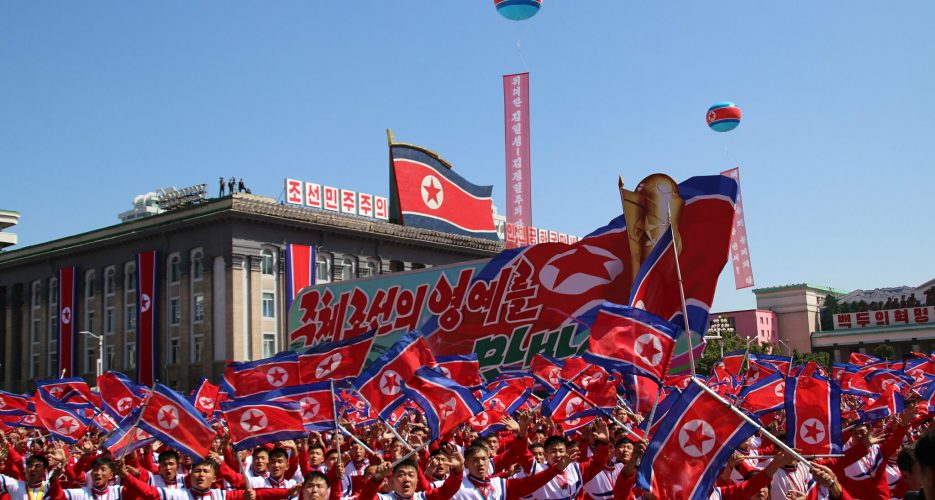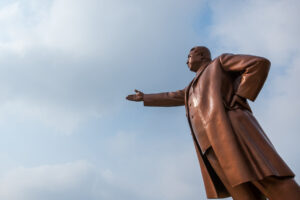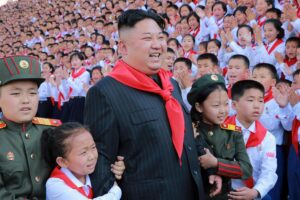North Korea: Champions of the World (Part 2) While it has been common for ‘socialist’ countries to have paid great attention to sporting achievement, as a means of displaying strength and attaining prestige in lieu of military conflict, North Korea has not traditionally fared well in this area. The women’s team has admittedly achieved far greater success and achievement on the football pitch than their male counterparts, winning the FIFA U20 WC in Russia in 2006. Aside Japan, they are the dominant force in Asia. This however has been overshadowed in recent times with a drugs scandal that saw five players found guilty of using performance-enhancing drugs, and has seen the country banned from the 2015 World Cup. Even despite this success and controversy, the regime will no doubt recognise that the men’s game tends to attract far more worldwide interest than the women’s game. This leads us on, therefore, to ask ourselves why North Korea has taken an increased interest in the country’s footballing successes, especially bearing in mind that sport has traditionally been used as a vehicle in North Korea not for international success, but instead as a means of maintaining internal propaganda, mobilising the population and sustaining the Juche ideal.
In recent years, the DPRK has opened up to levels not previously seen, with a variety of foreign companies now operating in the country. Kim Jong-Un himself was educated in Switzerland, the country has strengthened ties with a number of regional neighbours in response to changing geo-political realities since 1991, and the incorporation of foreign technology has grown considerably. All things considered, North Korea has been edging towards limited engagement with the world. In a footballing context, this is manifest through one Karl Messerli, a Swiss entrepreneur who has taken a keen interest in North Korean football. Through his work with the North Korean Ministry of Foreign Affairs, plans were finalised that would allow a number of North Korean players to play abroad, with the Ministry accepting that the country was unlikely to ever improve if its players were limited to domestic football. This is particularly acute due to the economic and political system in place, which prevents teams from North Korea competing in regional club tournaments. As a result, Mr. Messerli now holds the transfer rights for North Korean players abroad, and is working to arrange further deals for players to join teams in Europe.
While it has been common for ‘socialist’ countries to have paid great attention to sporting achievement, as a means of displaying strength and attaining prestige in lieu of military conflict, North Korea has not traditionally fared well in this area. The women’s team has admittedly achieved far greater success and achievement on the football pitch than their male counterparts, winning the FIFA U20 WC in Russia in 2006. Aside Japan, they are the dominant force in Asia. This however has been overshadowed in recent times with a drugs scandal that saw five players found guilty of using performance-enhancing drugs, and has seen the country banned from the 2015 World Cup. Even despite this success and controversy, the regime will no doubt recognise that the men’s game tends to attract far more worldwide interest than the women’s game. This leads us on, therefore, to ask ourselves why North Korea has taken an increased interest in the country’s footballing successes, especially bearing in mind that sport has traditionally been used as a vehicle in North Korea not for international success, but instead as a means of maintaining internal propaganda, mobilising the population and sustaining the Juche ideal.
In recent years, the DPRK has opened up to levels not previously seen, with a variety of foreign companies now operating in the country. Kim Jong-Un himself was educated in Switzerland, the country has strengthened ties with a number of regional neighbours in response to changing geo-political realities since 1991, and the incorporation of foreign technology has grown considerably. All things considered, North Korea has been edging towards limited engagement with the world. In a footballing context, this is manifest through one Karl Messerli, a Swiss entrepreneur who has taken a keen interest in North Korean football. Through his work with the North Korean Ministry of Foreign Affairs, plans were finalised that would allow a number of North Korean players to play abroad, with the Ministry accepting that the country was unlikely to ever improve if its players were limited to domestic football. This is particularly acute due to the economic and political system in place, which prevents teams from North Korea competing in regional club tournaments. As a result, Mr. Messerli now holds the transfer rights for North Korean players abroad, and is working to arrange further deals for players to join teams in Europe.
Try unlimited access
Only $1 for four weeks
-
Unlimited access to all of NK News: reporting, investigations, analysis
-
Year-one discount if you continue past $1 trial period
-
The NK News Daily Update, an email newsletter to keep you in the loop
-
Searchable archive of all content, photo galleries, special columns
-
Contact NK News reporters with tips or requests for reporting
Get unlimited access to all NK News content, including original reporting, investigations, and analyses by our team of DPRK experts.
Subscribe
now
All major cards accepted. No commitments – you can cancel any time.
© Korea Risk Group. All rights reserved.
No part of this content may be reproduced, distributed, or used for
commercial purposes without prior written permission from Korea Risk Group.
|











